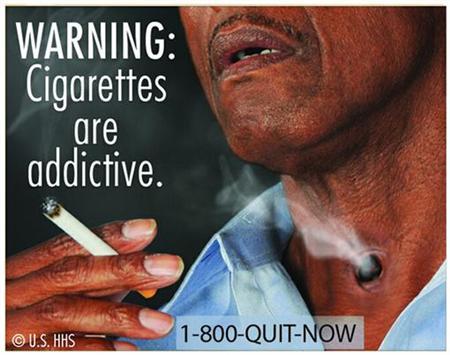These are my healthy links for February 19th:
- California’s Tobacco Control Program generates huge health care savings, study shows -Over a span of nearly 20 years, California’s tobacco control program cost $2.4 billion and reduced health care costs by $134 billion, according to a new study by UC San Francisco (UCSF).Additionally, the study — covering the beginning of the program in 1989 to 2008 — found that the state program helped lead to some 6.8 billion fewer packs of cigarettes being sold that would have been worth $28.5 billion in sales to cigarette companies.
- When to Retire a Running Shoe -Ryan Hall, one of the world’s best distance runners, used to pride himself on wearing his running shoes into nubs. No more. Now he assiduously replaces his shoes after running about 200 miles in them. He goes through two pairs a month.“I know that my shoes could probably handle a couple of hundred more miles before they are worn out, but my health is so important to me that I like to always make sure my equipment is fresh,” he said.Of course Mr. Hall, sponsored by Asics, does not have to pay for his shoes. Most of the rest of us do, and at around $100 a pair they aren’t cheap. Yet we are warned constantly to replace them often, because running in threadbare shoes may lead to injuries that can take months to heal.
So here’s a simple question: How do you know when your shoes are ready for those discard bins in gyms? And if you do get injured, is it fair to blame your shoes?
- States worry about rate shock during shift to new health law -Less than a year before Americans will be required to have insurance under President Obama’s healthcare law, many of its backers are growing increasingly anxious that premiums could jump, driven up by the legislation itself.Higher premiums could undermine a core promise of the Affordable Care Act: to make basic health protections available to all Americans for the first time. Major rate increases also threaten to cause a backlash just as the law is supposed to deliver many key benefits Obama promised when he signed it in 2010.”The single biggest issue we face now is affordability,” said Jill Zorn, senior program officer at the Universal Health Care Foundation of Connecticut, a consumer advocacy group that championed the new law.
- It’s official: The feds will run most Obamacare exchanges -Friday was a very important day for health policy days. It was the last day for states to tell the federal government whether they wanted any part in running the Affordable Care Act health exchanges come 2014.
The federal government did not get many takers. Some of the most closely watched states, including Florida and New Jersey, decided to leave the entire task to the federal government. All told, the federal government will run 26 of the state health exchanges. It also will partner with seven states, where state and federal officials take joint responsibility for the marketplace. Seventeen states and the District of Columbia will take on the task themselves. Here’s what that looks like in map form, via the Kaiser Family Foundation.


